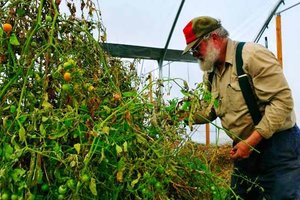According a recent article from the Washington Post, influencers of the agriculture industry want to establish farming as a right at the state level to help secure the multibillion-dollar industry from opposition.
Certain groups actively try to restrict methods of raising livestock and ways of growing food, as they believe such is not being done safely. The evolving battle could have long-term consequences for the country's food supply and for the millions of people globally who are reliant on the United States' agricultural exports. This has lead to the right-to-farm movement, which has already been approved in North Dakota and Indiana, and goes next to Missouri voters on August 5th.
Neal Bredehoeft, a corn and soybean farmer who supports the Missouri measure, said “Agriculture’s had a lot folks that’s been trying to come down on our farms and tell us what we can and cannot do. This gives us a little bit of protection.”
Indiana’s newly passed law, written into state law but not in the constitution, gives farmers the right to use “generally accepted” practices, including “the use of ever-changing technology.” North Dakota’s measure prohibits any law the “abridges the right of farmers and ranchers to employ agricultural technology, modern livestock production and ranching practices.”
Supporters of the campaign hope that the wording provides fit protection against initiatives that would restrict specific farming procedures and try to pre-empt any bans of genetically modified crops, similar to those recently passed in southern Oregon.
As Joe Maxwell, a former Missouri lieutenant governor who is now the Humane Society’s Vice President of Outreach and Engagement explained, the right-to-farm is a debate in each state. The conclusion of Missouri’s vote could impact what occurs next with the right-to-farm effort, as other states will take it more seriously.
